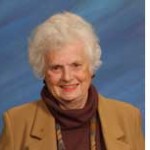By Natasha Josefowitz, Ph.D.

LA JOLLA, California — So many of our conversations now turn to expressions of fear. We no longer feel safe in our homes, our streets, our country, our world, or our planet. We have become anxious, worried about both current and future events. Our anxiety is exacerbated by the release of fake news, which increases our paranoia because we don’t know what to believe and whom to trust. We tend to accept news as true if it conforms to our belief system and tend to reject news that runs counter to our beliefs. With the barrage of information available to us, it is important to wade through contradictory news and find some solace in sources that we trust.
As we age, we experience a new kind of paranoia—when our short-term memory fails us, we often misplace objects, and our trigger reaction is “someone took it.” We blame a maid or whoever was a likely person to have been in our homes.
An example of this happened to me this morning. I’m about to go to lunch and can’t find my keys. I remember the phone ringing as I was coming in from breakfast, talking to someone, and forgetting the keys in the door. I panic, “Someone took my keys!” I call the front desk, the clinic, and finally Mike, the director of renovations, as I will need new house and mailbox keys. I inquire how long it will take to change my lock. I am so distraught that I have a stomach ache.
I am asked if I need someone to help me search my apartment. I adamantly refuse; I have a perfect memory of having left the keys hanging outside my door. Then on second thought, I take another look, shuffle some things around, and, lo and behold, under a stack of papers, I find my keys. In the meantime, Lorraine, the director of plant operations has been looking at the hallway camera videos to see who the intruder was who came to my apartment between 7:30 am and 11 am to snatch the keys from my door.
Am I embarrassed, yes; guilty, yes. But mostly I am worried about short-term memory loss, although I passed my yearly Alzheimer’s test at the ADRC (Alzheimer’s Disease Research Center), where I have been in a control group for at least a dozen years.
As long as I’m admitting to one of my failings, I might as well add the others that may be familiar to my readers. I have looked for my glasses when they were on top of my head, I have left my hearing aid at home and only noticed it when I saw people’s mouths moving with nary a sound, and I have stood in the elevator wondering why it wasn’t moving having forgotten to push the button. I have misplaced my cell phone and have had to call it in order to find where it is ringing in my apartment. Now you know!
This confusion is not unusual for my age group. Nor is the tendency to blame someone else for the disappearance of objects. We live in an age of anxiety: anxiety about theft in our own homes—although there is excellent security where I live and all employees are vetted—fear of falling, fear in walking in our city after reading about muggings in our neighborhoods, and fear of natural disasters as we read about the impending, apparently overdue earthquakes or fires and tsunamis worldwide.
As we age, we feel more vulnerable; we are not as steady on our feet, not as fast if we need to run somewhere to safety. And so our fears are exacerbated. The more we feel vulnerable, the more anxious we become, the more anxious, the more stressed, the more stressed, the more forgetful, the more forgetful, the more vulnerable, and so the cycle repeats itself. What to do?
According to the Harvard Men’s Health Watch (November 16, 2018) there can be several triggers to forgetfulness to consider: too little sleep (we still need six to eight hours), possible side effects of medications, an under-active thyroid (both of these last two can be easily checked), and depression. Memory can be improved by regular exercise and by challenging your brain by trying something new. Going to a computer class, even brushing your teeth with a non-dominant hand, anything that gets you out of your comfort zone will enhance your brain function.
© Natasha Josefowitz. This article appeared initially in the La Jolla Village News. You may comment to natasha.josefowitz@sdjewishworld.com